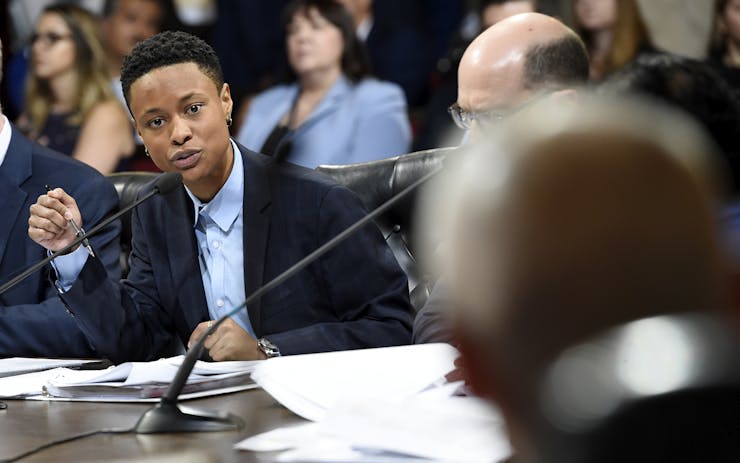The city of Los Angeles has raked in nearly $2.2 million in cannabis-related revenue since adult-use sales began last month, but the city’s Department of Cannabis Regulation is still strapped for resources, with just three full-time staffers scrambling to address a glut of licensing and regulatory issues.
“We’re at the point where we have many responsibilities, and not a lot of capacity,” Cat Packer, the department’s executive director, told Leafly on Friday. “In order for us to move this conversation forward responsibly, we’re going to at least need to quadruple our team.”
The shortfall could be partly to blame for what many saw as slow rollout to LA’s issuance of local cannabis business licenses, which began about two weeks after some nearby cities, such as West Hollywood. The small staff has also impacted Los Angeles residents, some of whom have attempted to reach the department with questions or concerns and then never receive a response.
“Every day we get to the office and our … phone inbox is full,” Packer said. “We have a number of emails that we just don’t have the capacity to respond to.”
“It’s very important to me that we don’t put Ms. Packer in a position to fail.”
The situation appears to be a result of a decision months ago to allocate five positions to the department. At the time, Los Angeles hadn’t adopted local regulations, making it difficult to predict how much bandwidth the office would need. “Capacity was established before responsibilities,” Packer said. Now that LA has a regulatory system in place, it’s clear the department’s needs a much larger workforce.
Consider, Packer told Leafly, that the population of Los Angeles is roughly the same as that of Colorado. “When the state of Colorado started its program—or now that they have its program up and running—they have 35 people, in comparison to our three.”
The entire LA department currently consists of herself, two other employees, and a handful of occasional floaters, Packer said.
At a City Hall committee meeting on Friday, council members introduced a motion that would increase resources for the Department of Cannabis Regulation. Council President Herb Wesson implored his colleagues to give the department the resources it needs—and quickly.
“It’s very important to me that we don’t put Ms. Packer in a position to fail,” he said.
Packer assured council members that as soon as the office has the additional capacity, it’s ready to tackle a host of outstanding issues. She told Leafly her request includes allocation for an additional 21 staff members.
The office’s chief responsibility is licensing and compliance. Even that, Packer said, is a daunting responsibility given current staffing levels. “Throughout the city, it’s likely that the department will issue anywhere from 1,200 to 1,400 licenses,” she said.
Other tasks involve engaging with businesses and the community, tracking state and federal cannabis policy, keeping tabs on how other municipalities are handling cannabis regulation, and establishing a public communications arm to inform Angelenos of the office’s operations, Packer said.
The city has made more than $2.2 million in cannabis licensing fees since it began accepting applications this year, said Packer, and they’re still waiting on about $800,000 in outstanding invoices. This puts the city comfortably ahead of revenue expectations, City Council President Herb Wesson said Friday.
One responsibility that the cannabis department won’t be in charge of is policing illegal operations. As Leafly reported earlier this week, illicit retail shops and delivery services have returned to the city in force since adult-use sales began. At a press conference on Wednesday, the Los Angeles Police Department estimated there were at least 200 to 300 illegal shops operating within the city.
Enforcement against unlicensed businesses is handled primarily by the Los Angeles Police Department with the help of the City Attorney’s Office, the LA Department of Water and Power, and other agencies, Packer said. While the Department of Cannabis Regulation does aid law enforcement in identifying which businesses are operating legally, she said her office is responsible only for enforcing compliance of “authorized and licensed businesses.”
“LAPD does normally and regularly check with the department to see if there are any pending applications or authorizations that have been issued to a specific location they’re looking into,” she said. “Regardless of whether or not the business has been authorized or not, if there’s criminal activity going on there, that’s LAPD’s wheelhouse.”





